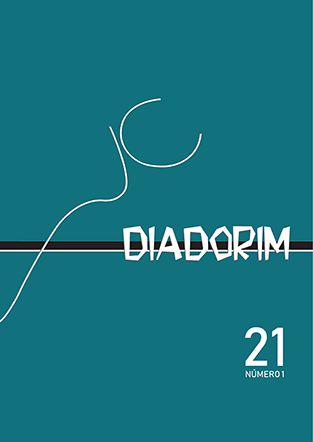From Bahia to Beira: ‘The last flight of the flamingo’ and the distant song
DOI:
https://doi.org/10.35520/diadorim.2019.v21n1a22631Keywords:
Mozambican Literature, Brazilian Popular Music, Mia Couto, Dorival Caymmi, Jorge Amado.Abstract
In “Águas do meu princípio”, present in Pensatempos, a book released in 2005, which brings together opinion texts of various kinds, Mia Couto, in reminding her own childhood in Beira - her native land and important port city of Mozambique -, leads the readers through an ambience that flirts, nostalgically, with a mythical atmosphere. In these lines, the Mozambican writer summons an important cultural legacy from Bahia: the famous song “É doce morrer no mar”, by the singer and composer Dorival Caymmi, whose verses are attributed to Jorge Amado and the textual elements that permeate Mar Morto, a novel published in 1936 by the most revered Brazilian writer in African literature of Portuguese official language. From such reminiscences and, above all, as an exercise in literary criticism, relations of contiguity can be established between excerpts from “Águas do meu princípio” and the internal structure that governs the nucleus of greatest poetic drive in O Último Voo do Flamingo, published in 2000. For this, the reflections of Antonio Candido, Roland Barthes, Benjamin Abdala Junior, Pierre Bourdieu, among others, will be implicated in this study in order to demonstrate the literary and musical links that have linked Brazil and Mozambique through the centuries.
Downloads
Published
Issue
Section
License
Copyright transfer -- Authorization to publication
If the submitted article is approved for publication, it is already agreed that the author authorizes UFRJ to reproduce it and publish it in Diadorim: revista de estudos linguísticos e literários, the terms "reproduction" and "publication" being understood as defined respectively by items VI and I of article 5 of Law 9610/98. The article can be accessed both by the World Wide Web (WWW) and by the printed version, with free consultation and reproduction of a copy of the article for the own use of those who consult. This authorization of publication is not limited in time, and UFRJ is responsible for maintaining the identification of the author of the article.

The journal Diadorim: revista de estudos linguísticos e literários is licensed under a Creative Commons Attribuition-NonCommercial 4.0 International (CC BY-NC 4.0).

